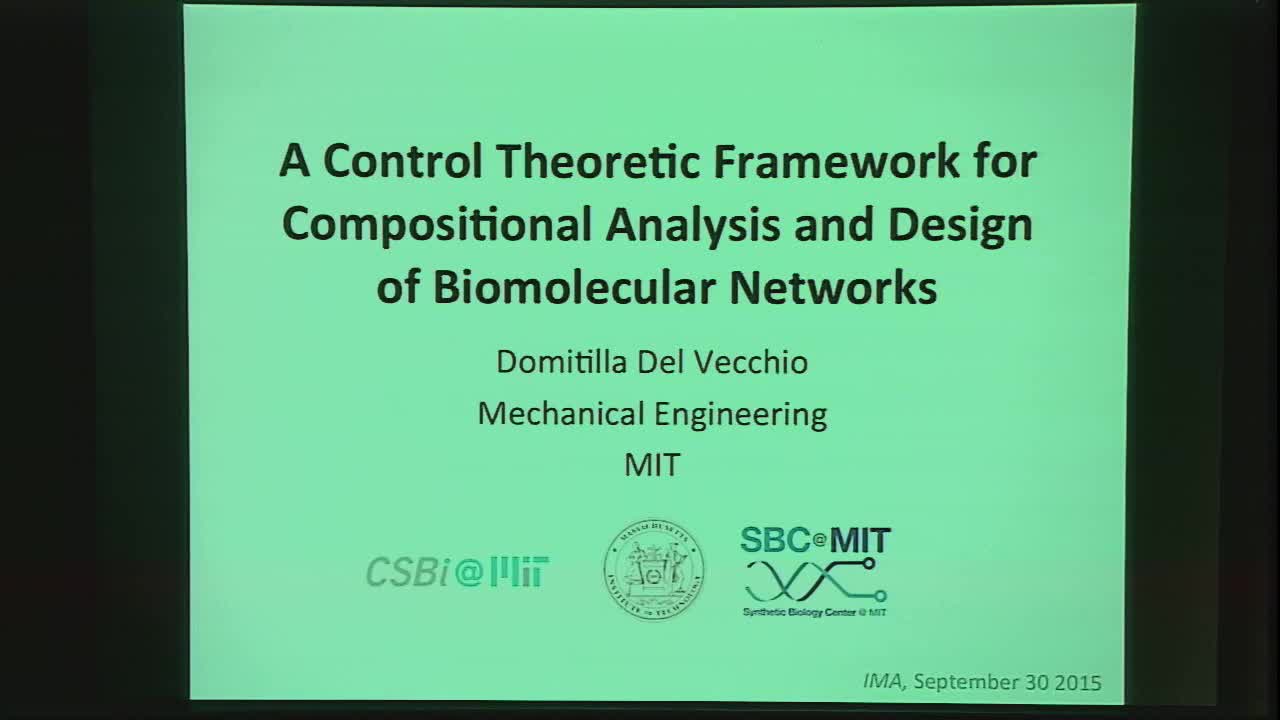A Control Theoretic Framework for Compositional Analysis and Design of Biomolecular Networks
Presenter
September 30, 2015
Keywords:
- Molecular structure
MSC:
- 92E10
Abstract
Control systems theory has laid out a powerful framework for modularly analyzing and designing the dynamics of interconnected input/output dynamical systems, wherein an interconnection is traditionally viewed as a one-way interaction. Whether biomolecular networks can be modularly analyzed and designed is one of the most vexing questions in systems biology and is also critical for the advancement of synthetic biology. In this talk, I will show how the output-to-input interconnection of biomolecular systems always implies a back-action that changes the signal being transmitted, an effect that hinders modularity intended as invariance of a system’s behavior upon interconnection. We called this back-action “retroactivity” to extend the notion of loading or impedance to biomolecular systems. To mathematically capture retroactivity, I will introduce a “systems” concept that enables determining how the interconnection among biomolecular systems changes an isolated system’ behavior. I will provide a result that conceptually resembles Thevenin’s theorem in electrical networks, whose rather surprising and counter-intuitive predictions have been experimentally validated in gene regulatory and signal transduction networks. The theoretical framework further allows formulating the problem of enforcing modularity as a classical disturbance attenuation problem, whose solution requires the development of new approaches that are compatible with the structure of biomolecular systems. I will hence show how these approaches were implemented to realize a load driver device in eukaryotic cells, which functions as an isolation amplifier and is used in synthetic biology to interconnect circuits while defeating retroactivity.
